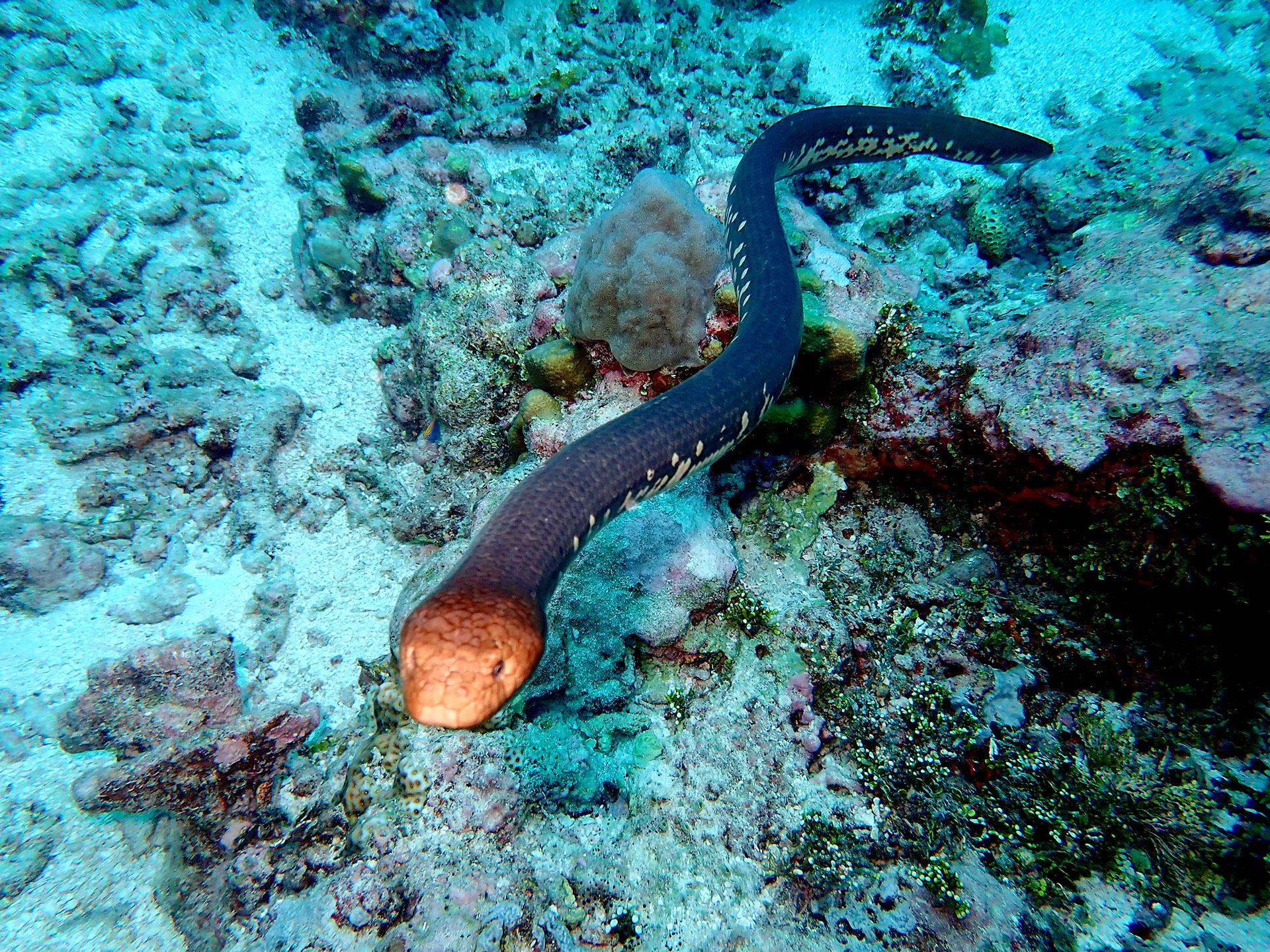Genomic consequences of major ecological transitions in evolution

An olive sea snake (Aipysurus laevis) swimming underwater. Credit: Graham Edgar.
This honours project asks, ‘what are the genomic consequences of major ecological transitions in evolution’?
The project will use a comparative analysis of whole genome sequences for terrestrial and marine snakes.
Kate's group focuses on speciation, trait evolution and biodiversity discovery/conservation, especially in aquatic snakes. Current projects involve:
- Sequencing sea snake genomes to uncover population history and genomic patterns of speciation.
- Reconstructing morphological evolution in sea snakes, especially the remarkably frequent origin of ‘microcephalic’ burrowing-prey specialists and possible role in promoting reproductive isolation and rapid species diversification.
- Molecular evolution of sensory systems in the transition to aquatic habitats in snakes, including vision, skin photoreception and chemoreception.
- Sea snake conservation genetics and management in partnership with Western Australian trawl fisheries.
Our research has a substantial fieldwork component focused primarily in Indonesia and Western Australia.
Supervisors
Associate Professor Kate Sanders | Alastair Ludington | Dr Jimmy Breen (co-supervisors)
Research area: Evolution and conservation of reptiles
Recommended honours enrolment: Honours in Evolution and Palaeobiology
